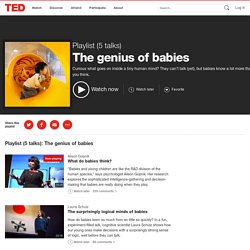

Learning Theories. Many Learning Theories have been developed over a long period of time, though a majority of those now in use have arisen in the last century or so.

These theories apply to many different levels of educational learning. Several theories and theorists stand out among this group, many for quite different reasons. Not all theories or theorists are covered on this page. This page covers major theorists and their theories. Information includes biographies, information, further sources and an increasing number of videos. For information on Learning & Teaching Styles, related methods and further information, go to this page. Bandura, Albert Bandura and his Social Cognitive Theory. Albert BanduraText presentation on the man and his theories. Bloom’s Taxonomy Benjamin BloomThe man and his works. Constructivism Constructivism and the Five E’sBrief rundown then goes to seven E’s. De Bono, Edward Edward De Bono and lateral & creative thinking.
Critical Thinking ResourcesTertiary level. Dewey, John Anthony F. 2009 - Child Development Theorists from Freud to Erikson to Spock and Beyond 1. LINKING THEORETICAL PERSPECTIVES AND PRACTICE.pdf. Association of Child Poverty, Brain Development, and Academic Achievement. The genius of babies. Now playing MIT researcher Deb Roy wanted to understand how his infant son learned language — so he wired up his house with videocameras to catch every moment (with exceptions) of his son's life, then parsed 90,000 hours of home video to watch "gaaaa" slowly turn into "water.

" Astonishing, data-rich research with deep implications for how we learn. Early Child Development - Benefits of Early Child Development Programs. A vast body of research has demonstrated that Early Child Development (ECD) programs benefit children, families, and communities.

The reduced dropout and repetition rates, improved school achievements, greater adult productivity, and higher levels of social and emotional functioning encouraged by ECD programs make them a highly cost-effective means of strengthening society as a whole by ensuring that its individual members live up to their full potentials. Evaluations of well-conceived programs designed to foster early development demonstrate that children who participate in these programs tend to be more successful in later school, are more competent socially and emotionally, and show better verbal, intellectual and physical development during early childhood than children who are not enrolled in high quality programs.
Benefits of ECD interventions can be found in the following areas: ECD programs in the United States ECD programs in the developing world Sources and References. Noteworthy early childhood development resources (v2): Research and data. Journal of Early Childhood Research. The Importance of Early Childhood Initiatives. June 5th was the national Early Learning Day of Action, a day that we emphasize efforts to enhance children’s healthy early learning. With current research, we gain a greater understanding of the importance of healthy development in the early years. This means that we must create safe environments for them that are conducive to growth and that minimize the potential for issues like violence, abuse, neglect or other trauma.
The most critical phases of brain development occur in the child’s first five years. We know that in the first five years of life brain development occurs more rapidly than during any other phase of development. The entire brain architecture takes place during this time. We also know that children’s early experiences not only have a profound effect on their brain development but also on other parts of their life and health that can impact them even into adulthood.
What research tells us. Help for ECE programs. Thanks for reading Lakeside Connect.